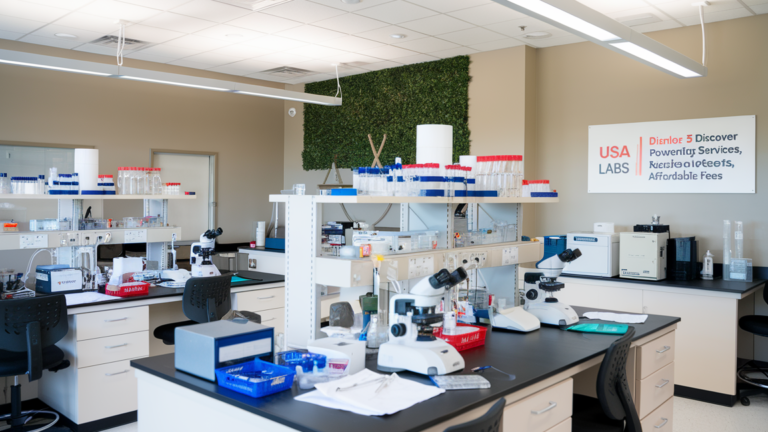
“Unlocking the Essential Benefits of Health Checkups for a Healthier Life”
Introduction
Health checkups play a crucial role in maintaining overall well-being and preventing diseases. These routine examinations are designed to detect potential health issues before they become serious, allowing for timely intervention and management. This article delves into the significance of health checkups, their benefits, and what you can typically expect during one.
Understanding Health Checkups

Health checkups, also known as preventive or annual checkups, involve a series of tests and examinations performed by healthcare professionals. They aim to assess your current health status and identify any potential risks or conditions. The frequency and type of checkup can vary based on age, gender, medical history, and lifestyle factors.
Why Are Health Checkups Important?
- Early Detection of Diseases
- Many health conditions, such as hypertension, diabetes, and cancer, can develop without noticeable symptoms. Regular checkups can help identify these issues early, making treatment more effective and less invasive.
- Prevention of Serious Health Issues
- By monitoring risk factors like cholesterol levels and blood pressure, healthcare providers can recommend lifestyle changes or medications to prevent serious health problems before they arise.
- Establishing a Baseline for Your Health
- Health checkups provide a benchmark for your health metrics. By understanding your normal ranges, you and your doctor can better identify any changes over time.
- Promotion of a Healthy Lifestyle
- Regular checkups encourage conversations about diet, exercise, and other lifestyle choices. Healthcare professionals can provide guidance and resources to help you make healthier decisions.
- Building a Relationship with Your Healthcare Provider
- Routine visits foster trust and open communication between you and your healthcare provider. This relationship can lead to more personalized care and better health outcomes.
Benefits of Health Checkups

- Comprehensive Health Assessment
- Checkups typically include a physical examination, health history review, and a series of tests (blood tests, urine tests, etc.). This comprehensive approach helps identify issues that may not be apparent during a regular visit.
- Customized Health Advice
- Based on the findings from your checkup, your healthcare provider can offer tailored advice, including nutrition and exercise recommendations, screenings, and vaccinations.
- Mental Health Screening
- Many checkups include mental health assessments. Identifying mental health issues early can lead to better management and support.
- Vaccination Updates
- Health checkups provide an opportunity to review and update vaccinations, ensuring you are protected against preventable diseases.
- Family Health History Review
- Discussing your family’s medical history during a checkup can help identify genetic risks and inform screening and prevention strategies.
- Access to Preventive Services
- Depending on your age and risk factors, health checkups may include access to preventive services like mammograms, colonoscopies, or screenings for sexually transmitted infections.
Components of a Health Checkup

- Physical Examination
- A thorough physical exam is conducted to assess your overall health. This includes checking vital signs (blood pressure, heart rate, temperature), examining your body for any abnormalities, and evaluating your general physical condition.
- Medical History Review
- Your healthcare provider will review your personal and family medical history, asking about past illnesses, surgeries, medications, and lifestyle habits (diet, exercise, smoking, alcohol use).
- Laboratory Tests
- Common tests performed during health checkups include:
- Blood Tests: These can check cholesterol levels, blood sugar levels, and organ function.
- Urinalysis: This test can identify urinary tract infections, kidney disease, and diabetes.
- Other Specific Tests: Depending on your age and risk factors, tests for certain conditions (e.g., HIV, Hepatitis) may be recommended.
- Common tests performed during health checkups include:
- Screenings
- Various screenings may be performed, such as:
- Blood Pressure Screening: To detect hypertension.
- Cholesterol Screening: To assess heart disease risk.
- Cancer Screenings: Such as mammograms for breast cancer or colonoscopies for colon cancer.
- Various screenings may be performed, such as:
- Counseling and Education
- Your healthcare provider may offer counseling on topics such as nutrition, exercise, smoking cessation, and stress management. Education on managing any chronic conditions is also an essential component.
Frequency of Health Checkups
The frequency of health checkups varies based on individual circumstances:
- Adults (18-39 years): Every 1-3 years, depending on risk factors.
- Adults (40 years and older): Annually or as recommended based on health status.
- Children: Regular checkups in early childhood and annual visits thereafter.
Factors Influencing Health Checkup Frequency
- Age: Older adults typically require more frequent checkups due to increased health risks.
- Medical History: Individuals with chronic conditions or a family history of specific diseases may need more frequent evaluations.
- Lifestyle: Unhealthy habits (smoking, poor diet) may necessitate more regular checkups.
- Gender: Certain health screenings (e.g., gynecological exams for women) are specific to gender and may affect checkup frequency.
Common Myths About Health Checkups
- “I’m healthy, so I don’t need checkups.”
- Even healthy individuals can benefit from regular checkups to prevent potential health issues.
- “Checkups are only for older adults.”
- Health checkups are important for all ages, including children and young adults.
- “I can skip checkups if I feel fine.”
- Many conditions can develop silently; regular checkups are essential for early detection.
Overcoming Barriers to Health Checkups

- Financial Concerns
- Many insurance plans cover preventive services. Understanding your coverage can alleviate concerns about costs.
- Time Constraints
- Scheduling checkups during off-hours or utilizing telehealth services can make it easier to fit appointments into busy schedules.
- Fear of the Unknown
- Educating yourself about what to expect during a checkup can reduce anxiety. Remember, healthcare providers are there to support and help you.
Conclusion
Health checkups are vital for maintaining good health and preventing serious conditions. By taking proactive steps to monitor your health, you can enjoy a longer, healthier life. Remember, early detection and intervention are key to effective treatment and better health outcomes. Make health checkups a regular part of your wellness routine, and prioritize your health today.



